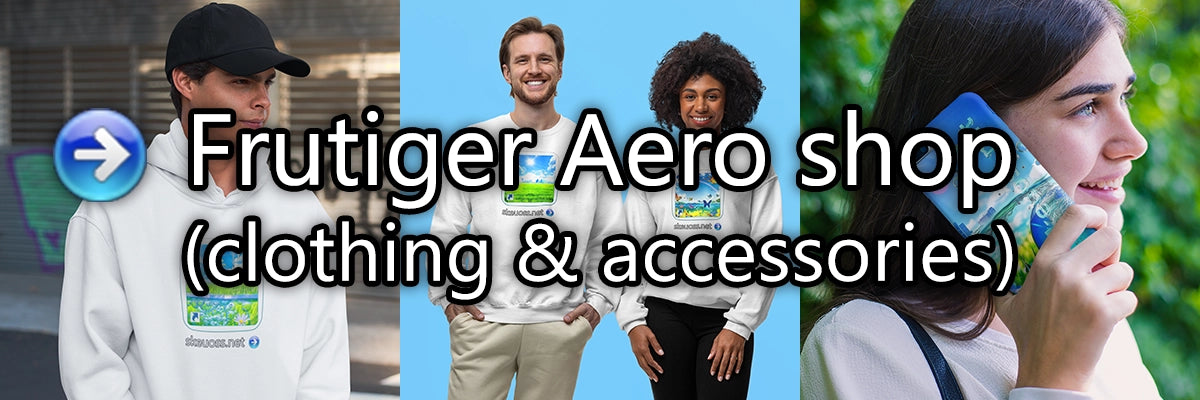
Frutiger Eco Aesthetic
What is Frutiger Eco?
Frutiger Eco represents a design aesthetic that combines elements of nature and advanced technology to promote environmental consciousness. Originating in the mid-2000s, this style became a symbol of ecological awareness with its distinctive use of green, teal, white, blue, and yellow hues. Themes like solar panels, imagery depicting Earth, and lush greenery typify this approach, emphasizing both a respect for nature and commitment to sustainable practices.

The core values of Frutiger Eco
At its heart, Frutiger Eco is deeply rooted in values such as sustainability, nature, and futuristic optimism. By integrating these ideals into visual design, it aims to inspire and educate about environmental preservation while envisioning a utopian, eco-friendly future. The effectiveness of this aesthetic in conveying its message has made it popular among corporations and products focused on eco-friendliness, particularly within sectors like cleaning supplies.
Evolving trends and subgenres
Despite a decline in mainstream popularity after its peak in the 2010s, Frutiger Eco's influence persists, especially in niche markets and specific product branding. A notable evolution within the aesthetic is the ‘Stock Eco Office’ or ‘Solargraphic’, which emphasizes a seamless integration of cutting-edge technology with natural elements. This subgenre pushes forward the agenda of sustainability by appealing visually through modern and accessible imagery.
Visual representations in Frutiger Eco
- Earth Imagery: Depictions of the Earth highlight global thinking and universal stewardship.
- Solar Panels: Symbols of renewable energy solutions and technological advancement.
- Trees and Plants: Emblems of life, growth, and direct connections to nature.
- Water Elements: Representations of purity, necessity, and life-sustaining resources.
- Futuristic Architecture: Designs that incorporate green technologies and innovative building techniques.
Impact and current relevance of Frutiger Eco
While its prevalence has waned, the legacy of Frutiger Eco endures. Its optimistic vision continues to resonate, influencing how companies portray their commitment to the environment. Today, we still see traces of Frutiger Eco’s principles in logos, packaging, and advertising within eco-conscious industries. The ongoing relevance signifies the lasting impact of integrating aesthetic appeal with environmental advocacy.
Conclusion: The lasting allure of Frutiger Eco
Frutiger Eco not only carved a niche for itself in the realm of design but also created a critical dialogue between consumers and the ideal of a sustainable future. As long as environmental issues remain at the forefront of global discourse, aesthetics like Frutiger Eco will continue to inspire and provoke thought on how our choices shape the future of our planet.
In reevaluating this aesthetic today, stakeholders can uncover new ways to engage audiences, advocating for an eco-friendly future with renewed vigor and innovative visual strategies.
Related posts
-

Clear Tech: A Transparent View into Y2K / Frutiger Aero Tech
Clear Tech, aka: Prison Tech, made its entry during the late 90s to early 2000s. While originally intended to make te...
-

MSN Messenger: The Rise, Reign, and Fall of a Legendary Service
In today’s world of near-instant messaging and continuous social media updates, it’s easy to forget how quickly digit...
-

Frutiger Aero Cities: Optimistic Futurism in Urban Architecture
The Frutiger Aero aesthetic captivates architects, designers, and city planners alike with its smooth and futuristic ...
-

History of Video Game Consoles during the Frutiger Aero Era (from 2004-2013)
During the height of the Frutiger Aero period, there was a significant emphasis on trying to show the world what was ...
-

Aqua mouse: revival of the 2000s computer liquid mouse (Hello Kitty, Pingu, Skeuoss....)
The Aqua Mouse is making a comeback in 2024, thanks to the Frutiger Aero aesthetic revival! In this article, we will ...








